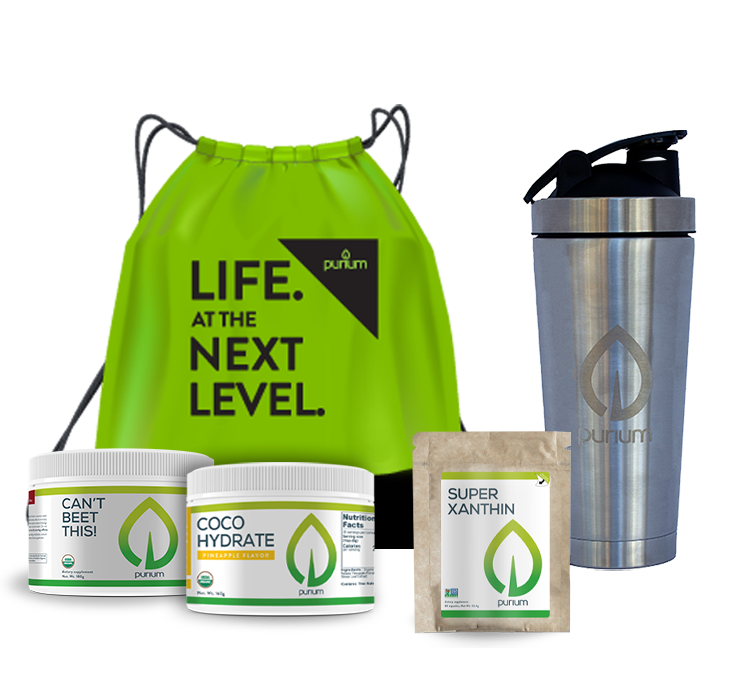Introduction to Energy Needs in Competitive Sports
The Importance of Nutrition for Athletic Performance
Nutrition plays a pivotal role in the world of competitive sports. It is the foundation upon which athletic performance is built, influencing everything from endurance and strength to recovery and overall health. A well-balanced diet rich in macronutrients, micronutrients, and fluids is essential to provide the energy necessary for growth, activity, and the rigors of training. Athletes must understand not only what to eat but also when and how to consume these nutrients to optimize their performance and maintain a competitive edge.
Understanding Energy Systems in the Body
The human body relies on various energy systems to fuel physical activity. These systems work together to convert food into energy, which is then used to power muscle contractions during exercise. The primary energy source is carbohydrates, metabolized into glucose and stored as glycogen in muscles and the liver. Proteins, while not a primary energy source, are crucial for muscle repair and, during prolonged activity, can help maintain blood glucose levels. Fats, although more difficult to convert into energy, provide a dense energy source and are particularly important during endurance events. Understanding these systems and how they interact is vital for athletes to effectively fuel their bodies for both short bursts of activity and prolonged endurance events.
Balancing Macronutrients for Optimal Energy
For athletes, balancing the intake of macronutrients—carbohydrates, proteins, and fats—is crucial for maintaining optimal energy levels. Carbohydrates should make up a significant portion of an athlete’s diet, providing the quick energy needed for high-intensity activities. Proteins are essential for the repair and growth of muscle tissue, especially after strenuous workouts. Fats should not be neglected, as they provide sustained energy, are necessary for the absorption of fat-soluble vitamins, and contribute to overall health. The key is to consume these macronutrients in the right proportions to support an athlete’s specific training needs and energy expenditure.
Carbohydrates: The Primary Energy Source
Complex vs. Simple Carbohydrates
Carbohydrates are the primary source of energy for athletes, but not all carbs are created equal. Complex carbohydrates, such as whole grains, legumes, and starchy vegetables, provide a slow and steady release of energy due to their longer chain structure and higher fiber content. This makes them ideal for sustained energy throughout training and competitions. On the other hand, simple carbohydrates, found in fruits, milk, and sweeteners, have a simpler molecular structure and are digested quickly, leading to a rapid spike in blood sugar and a quick burst of energy. While both types are important, athletes should focus on complex carbohydrates for long-lasting fuel and use simple carbohydrates for quick energy boosts when needed.
Timing of Carbohydrate Intake
The timing of carbohydrate intake is crucial for maximizing athletic performance. Eating complex carbohydrates 3-4 hours before an event provides the body with enough time to digest and convert them into usable energy. A smaller, carbohydrate-rich snack 1 hour before exercise can also offer an additional energy source. Immediately after exercise, consuming carbohydrates helps replenish muscle glycogen stores, which is essential for recovery and preparation for the next training session. Athletes should aim for a balance, ensuring they have enough energy to perform while avoiding excessive intake that could lead to digestive discomfort or unwanted weight gain.
Top Carbohydrate-Rich Foods for Athletes
Choosing the right carbohydrate-rich foods can make a significant difference in an athlete’s performance. Here are some top choices:
- Whole grains like brown rice, quinoa, and oats provide lasting energy and are packed with nutrients.
- Fruits such as bananas, oranges, and apples offer natural sugars for a quick energy boost along with vitamins and fiber.
- Starchy vegetables like sweet potatoes and squash are excellent for their complex carbohydrates and vitamin content.
- Legumes, including beans and lentils, not only supply carbohydrates but are also a great source of protein for muscle repair.
- Dairy products, such as milk and yogurt, provide a combination of carbohydrates and protein, ideal for recovery snacks.
Integrating these foods into an athlete’s diet can help ensure they have the energy needed to train effectively and compete at their best.
Proteins: Building Blocks for Recovery
The Role of Protein in Muscle Repair
Protein plays a pivotal role in the recovery process for athletes, particularly in the context of muscle repair. After strenuous physical activity, muscle fibers experience microscopic damage. Protein facilitates the repair and rebuilding of these fibers, a process essential for muscle recovery and growth. This biological mechanism is known as protein synthesis, where the body uses amino acids—the building blocks of protein—to reconstruct muscle tissue. Consuming adequate protein post-exercise not only supports this repair but also aids in the adaptation of muscles to training, ultimately leading to improved strength and performance.
Complete vs. Incomplete Proteins
Proteins are classified into two categories: complete and incomplete. Complete proteins contain all nine essential amino acids that the body cannot produce on its own and must obtain through diet. These are typically found in animal products such as meat, fish, poultry, eggs, and dairy. In contrast, incomplete proteins lack one or more of these essential amino acids and are commonly found in plant-based sources. To ensure a well-rounded amino acid profile, athletes, especially those following a vegetarian or vegan diet, should focus on combining different plant-based proteins throughout the day to create a complete amino acid profile.
Best Plant-Based Protein Sources
For athletes seeking plant-based protein options, there are several nutritious and effective choices. Here are some of the top plant-based proteins that can support recovery and muscle repair:
- Legumes: Beans, lentils, and chickpeas are excellent sources of protein and also provide fiber and other key nutrients.
- Quinoa: Unlike most plant foods, quinoa is a complete protein, offering all essential amino acids.
- Tofu and Tempeh: Made from soybeans, these foods are not only rich in protein but also versatile in cooking.
- Nuts and Seeds: Almonds, chia seeds, flaxseeds, and hemp seeds are great for snacking or adding to meals for a protein boost.
- Whole Grains: Whole grains such as brown rice and barley contribute to protein intake and are also packed with fiber and B vitamins.
- Plant-Based Protein Powders: Powders made from pea, rice, or hemp protein can be an easy addition to smoothies and shakes for a post-workout recovery drink.
Integrating these plant-based proteins into an athlete’s diet can ensure adequate recovery, support muscle maintenance, and contribute to overall health and performance.
Fats: Sustained Energy for Endurance
Healthy Fats vs. Unhealthy Fats
When it comes to athletic performance, not all fats are created equal. Healthy fats, such as monounsaturated and polyunsaturated fats, are essential for long-term energy, hormone production, and the absorption of fat-soluble vitamins. These fats are found in foods like avocados, nuts, seeds, and olive oil. In contrast, unhealthy fats, primarily trans fats and excessive saturated fats, can lead to health issues such as increased cholesterol levels and a higher risk of heart disease. Trans fats are often found in processed foods, while saturated fats are present in animal products and some tropical oils.
The Role of Omega-3 Fatty Acids
Omega-3 fatty acids, a type of polyunsaturated fat, play a crucial role in an athlete’s diet. They are known for their anti-inflammatory properties, which can help reduce muscle soreness and speed up recovery. Additionally, omega-3s are important for brain health and may improve cognitive function. Athletes can obtain omega-3 fatty acids from fatty fish like salmon, mackerel, and sardines, as well as from flaxseeds, chia seeds, and walnuts.
Optimal Fat Sources for Long-Term Energy
To ensure sustained energy for endurance sports, athletes should focus on incorporating a variety of fat sources into their diets. Here are some optimal choices:
- Nuts and Seeds: Almonds, walnuts, chia seeds, and flaxseeds not only provide healthy fats but also contain protein, fiber, and important vitamins and minerals.
- Fatty Fish: Salmon, mackerel, and sardines are excellent sources of omega-3 fatty acids, which support cardiovascular health and reduce inflammation.
- Plant Oils: Olive oil and avocado oil are rich in monounsaturated fats, which can help maintain healthy cholesterol levels and provide a steady source of energy.
- Avocados: This fruit is not only high in monounsaturated fats but also contains fiber and potassium, which are important for muscle function and recovery.
It’s important for athletes to include fats as part of a balanced diet, but the timing of fat intake is also crucial. Consuming fats immediately before exercise may slow digestion and lead to discomfort, so it’s best to focus on healthy fats in meals further removed from training sessions and competitions. Post-exercise, fats can be included in recovery meals to aid in nutrient absorption and replenishment of energy stores.
In conclusion, fats are a vital component of an athlete’s diet, providing essential fatty acids, aiding in the absorption of vitamins, and offering a source of sustained energy. By choosing healthy fats and understanding their role in the body, athletes can support their endurance and overall performance.
Hydration and Electrolytes
The Importance of Staying Hydrated
Hydration is a critical component of sports performance and overall health. Athletes who maintain optimal hydration can experience better endurance, improved cognitive function, and decreased risk of heat-related illnesses. Water serves as the body’s cooling system, lubricates joints, and helps transport nutrients to give the body energy. When athletes fail to stay hydrated, their bodies can’t perform at peak levels. Even a small drop in hydration can lead to decreased performance, early fatigue, and slower reaction times.
Electrolytes and Their Role in Athletic Performance
Electrolytes, such as sodium, potassium, calcium, and magnesium, play a vital role in maintaining fluid balance, muscle contractions, and nerve function. During intense exercise, athletes lose electrolytes through their sweat, and these must be replenished to maintain the electrical signals needed for muscle movements and to prevent muscle cramps, weakness, or spasms. The balance of electrolytes is crucial, as too much or too little can lead to serious health issues.
For athletes engaged in prolonged or high-intensity workouts, consuming electrolytes is particularly important. Sports drinks can be beneficial in these scenarios as they contain a balance of electrolytes and carbohydrates, which can help maintain energy levels and replace lost minerals more effectively than water alone.
Natural Sources of Electrolytes
While sports drinks are convenient, there are many natural sources of electrolytes that can be included in an athlete’s diet. Here are some foods and beverages that are rich in electrolytes:
- Bananas: High in potassium, they help prevent muscle cramps.
- Coconut Water: A natural beverage that contains a variety of electrolytes, including potassium and magnesium.
- Dairy Products: Milk and yogurt are excellent sources of calcium and often contain added vitamin D.
- Leafy Greens: Spinach and kale are packed with magnesium, calcium, and potassium.
- Nuts and Seeds: Snacks like almonds and pumpkin seeds offer magnesium and other minerals.
- Avocados: Rich in potassium, avocados also provide healthy fats for sustained energy.
- Electrolyte-Infused Waters: These are available for those who prefer a flavorless option to sports drinks.
- Salt: A pinch of salt can be added to meals or drinks to replenish sodium levels.
It’s important for athletes to include these foods in their regular diet to maintain an adequate balance of electrolytes. Additionally, they should be mindful of their hydration status by monitoring the color of their urine, aiming for a pale yellow to gauge proper hydration.
In conclusion, staying hydrated and maintaining electrolyte balance are essential for athletes to perform at their best. By incorporating natural sources of electrolytes into their diets and being mindful of their hydration status, athletes can ensure they are well-prepared for the demands of competitive sports.
Micronutrients and Antioxidants
Vitamins and Minerals Essential for Athletes
For athletes, the importance of macronutrients like carbohydrates, proteins, and fats often takes center stage in nutrition planning. However, micronutrients—the vitamins and minerals that the body requires in smaller amounts—are equally crucial for optimal athletic performance. These micronutrients play a myriad of roles, from bone health and oxygen transport to energy production and immune function.
Key vitamins such as B-complex vitamins are vital for energy production and the formation of red blood cells. Vitamin D is essential for bone health and immune function, while antioxidants like vitamins C and E protect the body from oxidative stress caused by intense physical activity. Minerals like iron, which is crucial for oxygen transport, calcium and magnesium for bone health and muscle function, and potassium and sodium for fluid balance and nerve signaling, are all integral to an athlete’s diet.
Athletes should aim to obtain these micronutrients primarily through a varied and colorful diet rich in fruits, vegetables, lean proteins, whole grains, and dairy products. However, in some cases, supplementation may be necessary to meet the increased demands of training and competition, especially for nutrients like iron and vitamin D.
Antioxidants: Fighting Oxidative Stress
During exercise, the body’s oxygen consumption can increase by more than 10 times, leading to the production of free radicals and resulting in oxidative stress. While the body has its own defense systems to manage oxidative stress, athletes may benefit from an increased intake of antioxidants through their diet to help neutralize excess free radicals.
Antioxidants like vitamin C, vitamin E, selenium, and beta-carotene can be found in a variety of foods. For example, citrus fruits, berries, nuts, seeds, and green leafy vegetables are excellent sources. These nutrients not only combat oxidative stress but also support the immune system, reduce inflammation, and can aid in recovery and muscle soreness.
Superfoods for Enhanced Recovery and Performance
Some foods are so nutrient-dense that they are often referred to as “superfoods.” These include items like berries, which are high in antioxidants, beets, which can improve blood flow and oxygen delivery due to their nitrate content, and omega-3 rich foods like salmon and flaxseeds, known for their anti-inflammatory properties.
Other superfoods beneficial for athletes include quinoa and chia seeds, which provide a complete protein source, as well as important minerals and B-vitamins. Dark chocolate with a high cocoa content is rich in flavonoids, and green tea is known for its catechins, both of which have antioxidant properties.
Incorporating these superfoods into an athlete’s diet can help enhance recovery, reduce injury risk, and potentially improve performance. As with all aspects of an athlete’s diet, variety is key. A diverse intake of superfoods ensures a broad spectrum of nutrients to support health and athletic endeavors.
Putting It All Together: Meal Planning for Athletes
Designing a Balanced Meal Plan
For competitive athletes, a balanced meal plan is the cornerstone of peak performance. It involves a mix of carbohydrates, proteins, and fats, tailored to the athlete’s specific energy demands. Carbohydrates are the primary fuel source, especially for high-intensity activities, while proteins are crucial for muscle repair and recovery. Fats provide sustained energy, particularly for endurance sports. Athletes should aim for a variety of foods to ensure they receive all the necessary vitamins, minerals, and nutrients. Planning meals around training schedules is essential, with different requirements for easy, moderate, and hard training days.
Pre- and Post-Workout Nutrition
Pre-workout meals should be consumed 3-4 hours before the event and focus on providing ample carbohydrates for energy, moderate protein, and low in fat and fiber to minimize gastrointestinal discomfort. A banana with peanut butter or a chicken breast with pasta and a light sauce are good examples. Post-workout nutrition is about recovery; it should contain carbohydrates to replenish glycogen stores and protein to aid in muscle repair. This could be a smoothie with Greek yogurt and fruit or a chicken and vegetable stir-fry over brown rice. Hydration is also crucial, with water intake before, during, and after exercise, and sports drinks when necessary to replenish electrolytes.
Sample Meal Ideas for Competitive Athletes
Here are some sample meal ideas for athletes on easy, moderate, and hard training days:
- Easy Training Day:
- Breakfast: Whole grain cereal with organic milk, strawberries, and pecans.
- Snack: Carrot sticks with hummus.
- Lunch: Turkey sandwich on whole grain bread with a side salad.
- Snack: Apple and a handful of almonds.
- Dinner: Stir-fry vegetables with chicken over brown rice.
- Snack: Homemade oatmeal raisin cookie and frozen yogurt.
- Moderate Training Day:
- Breakfast: Smoothie bowl with yogurt, milk, peaches, and granola.
- Snack: Fresh berries and a splash of yogurt.
- Lunch: Panzanella salad with a protein flip burger and watermelon.
- Snack: Handful of dried cherries and a granola bar.
- Dinner: Grilled vegetables with roasted potatoes and grilled pork chop.
- Snack: Slice of fruit pie with vanilla yogurt.
- Hard Training Day:
- Breakfast: French toast with peanut butter, fruit compote, and almonds.
- Snack: English muffin with peanut butter and honey.
- Lunch: Couscous with garbanzo beans, roasted squash, and wilted greens.
- Snack: Pretzels and a sports drink during workout.
- Dinner: Rice bowl with vegetables, soy sauce, chicken, and cashews.
- Snack: Fruit pie with ice cream.
Remember, these are just examples and meal plans should be personalized to fit the athlete’s preferences, nutritional needs, and training demands. It’s also important to adjust portion sizes and ingredients based on the intensity of the training day and individual energy requirements.
Sources:
https://www.heart.org/en/healthy-living/healthy-eating/eat-smart/nutrition-basics/carbohydrates
https://blog.nasm.org/workout-and-nutrition-timing
https://www.health.harvard.edu/staying-healthy/the-truth-about-fats-bad-and-good
Power up your game with the Sports Power Pack. Boasting superfoods and holistic herbs to keep you on your feet!









